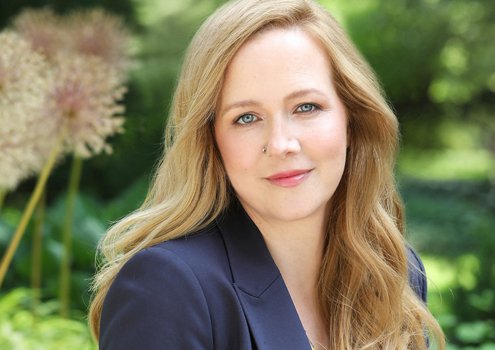Reading time: About 2 minutes
Erin Zimmerman says you don’t need to be inspired or wait for inspiration to come to you in order to write. Instead, you just need to put in the work to shape it into something better….
Erin Zimmerman is an evolutionary biologist turned science writer and scientific illustrator. Her interests lie in botany, evolution, and the history of science. Erin’s first book, Unrooted: Botany, Motherhood, and the Fight to Save an Old Science, was published in 2024. It explores the history of women in botany, the experience of becoming a mother in science, and the importance of natural history research to preserving biodiversity and slowing species extinction. Erin is a contributor to New York Magazine, HuffPost, Smithsonian, Undark and Narratively, among others, and writes a botany and evolution newsletter called A Feast for the Curious.
I was excited to talk to Erin about how she approaches writing.
Q. Roughly how much time do you spend writing every day?
I do several part-time gigs that aren’t writing, and my weekends are dominated by parenting tasks, so I don’t really write daily. I try to do it in larger blocks a few days a week. This has been most efficient for me.
Q. What’s a simple activity or habit that makes you a better writer?
Probably reading a lot. Getting exposed to different styles and ways of approaching a subject has been most useful in framing what I want, or don’t want, to do myself.
Q.What interferes with your writing?
Having young children means a lot of unexpected breaks in my work week and in my writing time generally, but I wouldn’t say it interferes so much as forces a different working style. Fatigue interferes, certainly, as the first thing to go when I’m tired is my self-discipline.
Q. How do you persuade yourself to sit down to write on days when you really, really DON’T feel like doing it?
I break things up into very small chunks and have very low expectations of myself. Once the ball starts rolling and I get past the initial resistance, it gets easier.
Q. Is there a particular motto or saying that you’ve found helpful for writing?
On my most unmotivated days, I remind myself that you can’t edit a blank page. Even if a piece of writing doesn’t end up being useful, it usually helps you to see another way forward.
Q. Which stage of the writing process do you enjoy the most: researching, writing or editing/rewriting and why?
I love the researching and outlining stage, because everything seems possible, and you haven’t had to get realistic with yourself yet. You can let yourself dream and imagine the best possible outcome. And of course you get to learn new things and stumble on information that’s perfect for your envisioned project.
Q. What’s one of the best books you’ve read (either fiction or non) in the last five years?
One of my favourite science books of the past five years would have to be Otherlands, by Thomas Halliday, which is an exploration of the planet’s landscapes and ecosystems going back in time to the early stages of life on Earth.
On the memoir front, I was lucky enough to be an advance reader for Sarah Boon’s book Meltdown: The Making and Breaking of a Field Scientist. Her struggles with sexism in research made it such a relatable read for me.
Q. What book are you reading right now?
Right now I’m reading The Ends of the World, by Peter Brannen, on the Earth’s major mass extinction events.
Q. What do you think is the biggest misperception that new writers have about the act of writing?
That you have to be inspired or wait for inspiration to come to you in order to do it. You don’t. You can write garbage while feeling terrible (ask me how I know) and still shape it into something good if you keep at it and put the work in.


